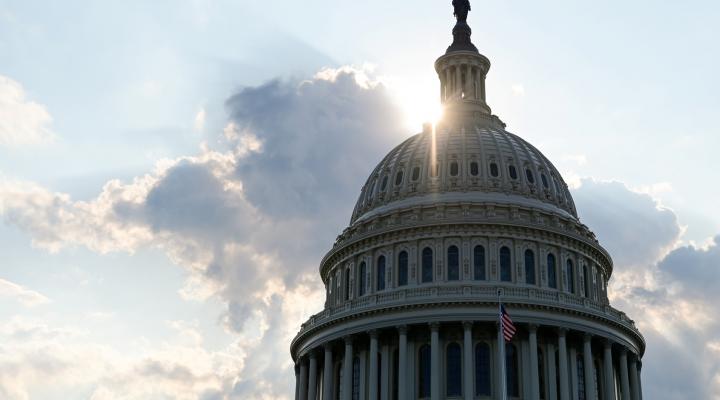What Congress Fundamentally Misunderstands About Zero-Commission Brokerages

The phrase "there is no such thing as a free lunch" is often attributed to the economist Milton Friedman, although it is something that has been around since at least the 1930s; it seems Friedman was just fond of using it. That fondness for the phrase is understandable as it is not just apt and frequently relevant, but also something that people tend to forget on a regular basis. The most recent example of that is the whole GameStop (GME), Reddit's Wall Street Bets, and Robinhood saga. That became clear yesterday as some of the people involved testified before the House Financial Services Committee.
For a lot of people, the overwhelming impression they got from yesterday’s show, as is often the case with Congressional committee hearings, is that the those doing the questioning usually had little or no knowledge of the subject involved. They frequently exhibited a total lack of understanding of how markets work and had no grasp of the concept of risk. They meant well, but started from the wrong place.
There seemed there to be an expectation by some committee members that retail investors were entitled to free, unfettered access to markets. That has never been the case and never will be, but it isn’t just true for little guys like you and me. Liquidity has a cost, and the big players pay it too. As someone who started as a broker back in the largely unregulated interbank forex market of the 1980s, I am more aware of that than most. We provided liquidity to the banks, but we charged them a lot for the service.
What has changed since those days is that the costs involved for retail traders are not as visible as they were then. It was only a few years ago that if you wanted to trade, you would pay a fee to the broker. Less than a decade ago, it was seen as revolutionary when some brokerages started to charge "only" five or six dollars per trade, rather than the fifty or so that was normal for a so-called "full service" broker. Even at the lower levels, though, brokerage fees meant that it was almost impossible to trade profitably in a small account. If you initiated a trade for $100, say, with a $5 per trade brokerage fee on both the entry and exit trades, you had to make 10% before even breaking even.
Now, brokerage frees have gone the way of the dodo, but the brokers still make money in several ways.
They earn interest on your account balance, for example, and they sell your trades to firms who make their money primarily by matching buy and sell orders with a small spread between the execution prices. Even tiny spreads can be lucrative with massive volume, which is why Citadel and firms like them pay for order flow. For some reason, that was being portrayed by some committee members yesterday as some kind of evil scheme to defraud retail traders and investors even though it leads to better order fills for most clients, and enhances the possibility of them trading profitably by eliminating trade fees.
The same principle of profiting on volume applies to the interest accrued on your balances too. A tiny fraction of a percent overnight interest on your $1k account balance would barely register for you but multiply that by a few million account holders, and it quickly adds up.
What retail investors may have lost in both cases is some opportunity, but missing out on a few pennies in interest each month or on a fraction of a penny better fill on a small order is a much better deal than paying each time a trade is made. You have no inherent right to use a company’s services for free. You will pay somehow, and the zero commission model suits most small traders much better than the old way.
Even with those advantages, some people will lose money, of course, and some of them will lose a lot. That is, always has been and always will be a part of trading; risk is the other hidden cost, but it is ever present. We can try, with the best of intentions, to protect those people from themselves, but ultimately it comes down to priorities. Should those who do trade responsibly be restricted because some cannot trade responsibly? Should innovative companies who offer a better deal for small traders be punished because they make money?
The fact is that there were some things about the GameStop affair that require an explanation. The trade restrictions imposed by brokers made sense in terms of risk mitigation for firms like Robinhood and for their account holders, but they gave the appearance of being unfair. The committee’s work can help to explain that and can serve other purposes too. However, pretending that the business practices of brokerage firms that have resulted in huge strides towards the democratization of Wall Street are somehow evil does not help.
There is still no such thing as a free lunch and going back to when the bill was much more visible but also much higher will not change that fact; it will just make the “free lunch” more expensive.
Do you want more of Martin? If you are familiar with Martin’s work, you will know that he brings a unique perspective to markets and actionable ideas based on that perspective. In addition to writing here, Martin also writes a free weekly newsletter with in-depth analysis and trade ideas focused on just one currently underperforming sector. To find out more and sign up for the free newsletter, just click here.
The views and opinions expressed herein are the views and opinions of the author and do not necessarily reflect those of Nasdaq, Inc.
